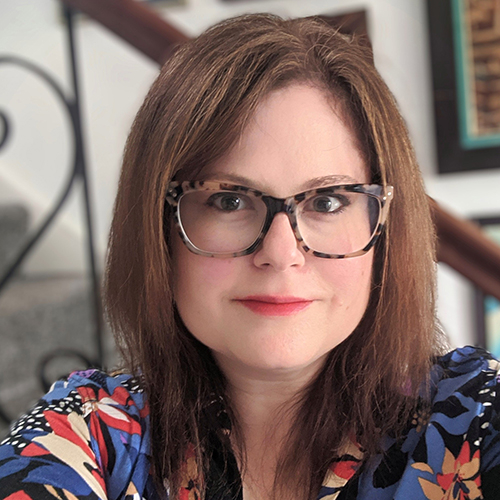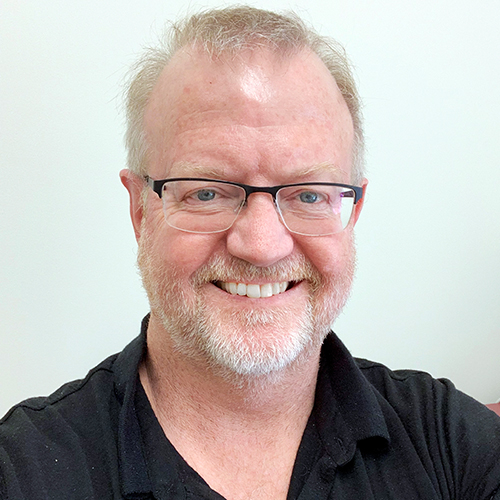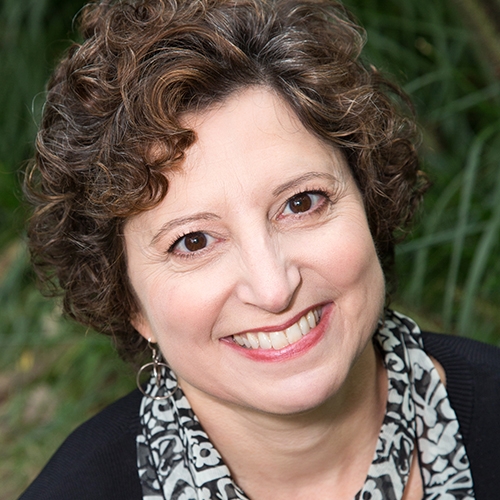
GOLD Learning Day: Elevating Our Expertise on Lactation Physiology and Endocrinology
Having a thorough understanding of the physiology and endocrinology related to human lactation is crucial for health care professionals supporting clients with breast/chestfeeding challenges. As we kick off 2024, we are excited to bring together expert speakers Professor David Grattan, Alyssa Schnell, and Tamara Drenttel Brand to discuss the action of prolactin during pregnancy and lactation, how care plans for induction of lactation should be adjusted based on individual hormonal profiles and how lactation is impacted by overactive mast cells.
Click Here to Download our informational Poster showcasing Speakers, presentations and registration information.
Free to GOLD Learning Participants with Alumni Status - Do you have Alumni status? As a special thank you to our past participants that have attended 5 or more Live GOLD Conferences, you are invited to attend with a complimentary registration. Add this package to your cart and follow the check out process. When prompted, login with your GOLD Learning associated email address and on the final step, the discount will be automatically applied. A separate invitation email will also be sent to our Alumni Status Participants. Not sure if you're eligible? Check your Alumni Status here.
GOLD Annual Members: Please note that GOLD Annual Membership is not the same thing as having Alumni Status. Become a GOLD Annual Member to enjoy a 10% discount from your registration fee!
Prices in USD |
Individual Registration | Group Registration (5+) | |
| Country Category A | $50 | $40 | |
| Country Category B | $25 | $20 | |
| Country Category C&D | $15 | $12 | |
Want to Sign Up as a Group of 5 or more? Contact us at [email protected]
Invite your friends and colleagues and share this great learning experience together. Easily tag/share/comment/repost through our posts below.


Tamara Drenttel Brand holds an MA in Near Eastern Studies from the University of Arizona and a Master’s in Public Health (MPH) from the American University of Beirut. She spent 10 years in the Middle East, where she worked as a public health practitioner, infant and maternal health consultant and an IBCLC. She has supported breastfeeding dyads from all over the world both in private practice and as a volunteer. In 2011, she founded and still actively facilitates “Mama 2 Mama Beirut Breastfeeding Support,” the largest breastfeeding peer support network in the Middle East (currently at 25k+ members). Additionally, she founded Galactablog, a professional group for lactation specialists and those aspiring-to-be (currently at 4.7k+ members) and has authored several articles for La Leche League’s monthly leader publications in both the Middle East and Ireland.
She is currently an international speaker on the topics dealing with breastfeeding in the Middle East, innovative lactation teaching strategies, working in resource-scarce settings, providing culturally sensitive lactation support, developing and implementing peer counselor training programs, mast cell disease and other related topics. Due to her own chronic health conditions, she has a special interest in educating others about mast cell disease and supporting those with chronic illnesses. She currently resides in a seaside village in Ireland with her family.
Topic: Contextualizing Breastfeeding in Lebanon - [View Abstract]
Topic: Lactation Education Outside the Box: Innovative Teaching Strategies to Engage Your Audience - [View Abstract]
Topic: Mast Cell Diseases and Lactation Care in the Post-Covid Era - [View Abstract]
Topic: Providing Culturally Sensitive Support for Breastfeeding Muslim Families - [View Abstract]
Topic: Reflections on a Breastfeeding Peer Counselor Program in Lebanon: Lessons Learned and Looking Forward - [View Abstract]
1. Describe 3 health conditions associated with Mast Cell Disease
2.Explain 3 common triggers experienced by people with Mast Cell Disease
3. List 2 common Mast Cell medications compatible with lactation
4. Describe 2 potential solutions for common problems which may be experienced by lactating people who have Mast Cell Disease
Mast cell diseases remain highly misunderstood and underdiagnosed conditions, even among medical professionals. Patients often take years to be diagnosed due to the range of symptoms and effects that such diseases can manifest. Recently, emerging evidence-based research has found links between mast cell disease(s) and Long COVID, theorizing that COVID-19 can exacerbate existing and undiagnosed mast cell diseases and that the SARS-CoV-2 virus itself could activate mast cell diseases. This raises the possibility that mast cell diseases will become more prevalent, requiring medical professionals, including lactation specialists, to be aware of their impacts and to provide the specialized care and support that such conditions require.
This presentation will provide participants with an overview of the different types of Mast Cell Diseases, symptoms, triggers and treatments. It will discuss associated chronic conditions and will highlight potential complications that such diseases can present for birth and breastfeeding. It will also provide resources to help participants determine lactation risk and compatibility with Mast Cell disease treatments and medications. Finally, this presentation will equip participants with the knowledge and practical tools to improve lactation support and care for clients with Mast Cell Disease.


Dave Grattan is a professor in the Department of Anatomy at the University of Otago, School of Biomedical Sciences. He has published over 180 research articles in the field of Neuroendocrinology, particularly focused on the hormone prolactin. He has also presented over 30 invited lectures at international meetings, and won a number of prizes, including the Triennial Medal of the Physiological Society of New Zealand (2005), the Mortyn Jones Medal of the British Society for Neuroendocrinology (2009) and HNNA Lecturer for the International Congress of Neuroendocrinology (2022). He was Head of the Department of Anatomy from 2011-2014, and Director of the Centre for Neuroendocrinology at the University of Otago from 2018-2023. He has served as the President for the New Zealand Society of Endocrinology (2003-2006) and for Hypothalamic Neuroscience and Neuroendocrinology Australasia (HNNA, 2017-2020). From 2009-2014 he was the Editor-in-Chief of the Journal of Neuroendocrinology, and is currently an Associate Editor at Endocrinology. He chaired the organising committee for the 8th International Congress of Neuroendocrinology in Sydney, Australia, 2014, and from 2018-2022 chaired the FASEB Science Research Conference on Growth hormone/prolactin family in health and disease.
1. Describe the pattern of prolactin and placental lactose secretion during pregnancy.
2. Explain the distribution of prolactin receptors in the body, and particularly in the brain.
3. List the range of different physiological systems that are influenced by prolactin and placental lactose during pregnancy and lactation, beyond simply milk production in the mammary gland.
4. Analyze the complexity of hormone-induced changes in the maternal body.
Many changes take place during pregnancy to prepare for the physical and physiological challenges of becoming a mother, including numerous adaptations in the maternal brain. Dynamic fluctuations in key hormones during pregnancy induce these adaptive changes to enable the mother’s physiology to adjust to the new demands of these reproductive states and to provide the optimal environment for the development of her baby. Evidence shows that the “lactogenic hormones” (i.e. the multiple pituitary and placental hormones that act through the prolactin receptor) are critical for many of the adaptive changes that occur during pregnancy. It is well accepted that prolactin is required for lactation, but it is now clear that these hormones have a much wider role, influencing maternal behaviour and the maintenance of lactation infertility. Surprisingly, we have shown that prolactin action in the brain also mediates metabolic changes, including stimulation of food intake, a profound suppression in voluntary physical activity in pregnancy, and there is exciting new data showing a role for prolactin in thermoregulation. Collectively, we believe these observations are consistent with the hypothesis that prolactin (and its placental homologue placental lactogen) plays a key role in coordinating the behavioural and physiological adaptations to pregnancy in the mother, and lactation could be considered simply another in this suite of prolactin-mediated physiological adaptations. These data highlight a much more comprehensive role for prolactin in the process of mammalian reproduction than is typically considered for this “lactation hormone”.


Alyssa has been helping parents and babies with breastfeeding since 2002, first as a La Leche League Leader and since 2009 as an International Board Certified Lactation Consultant.
Alyssa works in private practice serving clients worldwide, primarily through telehealth. She is the author of Breastfeeding Without Birthing: A Breastfeeding Guide for Mothers Through Adoption, Surrogacy, and Other Special Circumstances and a professional supplement to the book, The Breastfeeding Without Birthing Professional Pack online training.
Alyssa has authored articles for The Journal of Human Lactation: The Three Step Framework for Inducing Lactation and Successful Co-Lactation by a Queer Couple: A Case Study. She has also authored articles for La Leche League’s Leader Today and Breastfeeding Today magazines, and Adoptive Families magazine. She is an international speaker on the topics of inducing lactation, relactation, and other related topics. Alyssa is the proud mother of three breastfed children, two by birth and one by adoption. She lives in St. Louis, Missouri, USA.
Topic: Demystifying Inducing Lactation: How Lactation Happens Without Pregnancy and Birth - [View Abstract]
Topic: ReLATCHtation: Transitioning the Exclusively Bottle-fed Baby to Nursing - [View Abstract]
Topic: Supplementation: A Goldilocks Dilemma - [View Abstract]
Topic: The Proficient Pumper - [View Abstract]
1. Describe the hormonal changes that take place during the different stages of lactogenesis.
2. Explain how to use The Three Step Framework for Inducing LactationTM to develop an individualized plan for inducing lactation.
3. Describe how to adjust individual plans for inducing lactation based on various hormonal and anatomical profiles.
Inducing lactation may seem like milk-making magic. How can the breasts make milk without the hormones of pregnancy followed by the hormonal shift that happens with birth? We can use what is already well known about the endocrinology of lactation in general to understand how lactation happens in this very special circumstance. Parents inducing lactation may also present with more diverse hormonal profiles -- think PCOS, post-menopause, trans woman, or intersex – and all these extraordinary parents can be supported with a flexible and customizable plan to make milk. The human body is amazingly adaptable, which is so clear when a person is lactating without gestating!
Accreditation
CERPs - Continuing Education Recognition Points
Applicable to IBCLC Lactation Consultants, Certified Lactation Consultants (CLCs), CBEs, CLE, Doulas & Birth Educators. GOLD Conferences has been designated as a Long Term Provider of CERPs by IBLCE--Approval #CLT114-07. This program is approved for 3 L-CERPs.
CMEs - Continuing Medical Education Credits for Physicians & Nurses
The AAFP has reviewed the activity and deemed it acceptable for AAFP credit. Term of approval is from 01/16/2024 to 01/16/2025. Physicians should claim only the credit commensurate with the extent of their participation in the activity. This activity is approved for 3 AAFP Prescribed CME credits.
Nurse Contact Hours
This nursing continuing professional development activity was approved by the American Nurses Association Massachusetts, an accredited approver by the American Nurses Credentialing Center’s Commission on Accreditation for 3 Nursing Contact Hours. Nurse Contact Hours are valid until 01/16/2026.
Upon completion of this activity, GOLD learners will be able to download an educational credit for this talk. Successful completion requires that you:
- View this presentation in its entirety, under your individual GOLD login info
- Successfully complete a post-test (3 out of 3 questions correctly answered)
- Fill out the Evaluation Survey
If you have already participated in this program, you are not eligible to receive additional credits for viewing it again. Please send us an email to [email protected] if you have any questions.
Additional Details:
Viewing time: 6 Weeks
Tags / Categories
(IBCLC) Maternal, (IBCLC) Pathology, (IBCLC) Physiology and Endocrinology, Induced Lactation & Relactation, Maternal Anatomy & Physiology, Maternal Illness & Breastfeeding
How much time do I have to view the presentations?
- The viewing time will be specified for each product. When you purchase multiple items in your cart, the viewing time becomes CUMULATIVE. Ex. Lecture 1= 2 weeks and Lecture Pack 2 = 4 Weeks, you will have a total of 6 weeks viewing time for ALL the presentations made in that purchase.
- Time for viewing the talks begins once you purchase the product. For Live Webinars & Symposiums, the viewing period begins from when the live event takes place. Presentations can be accessed 24/7 and can be viewed as many times as you like during the viewing period.
What are bundled lectures?
- Presentations may be available individually or via a bundled package. Bundled lectures are a set of lectures that have been put together based on a specific category or topic. Some lectures will be available in both individual and lecture form, whereas others will be available only via a bundled lecture pack.
Will there be Handouts?
- YES! Each lecture comes with a PDF handout provided by the Speaker.
Some lectures include a Q&A, what does that mean?
- During our online conferences, presentations that occur live are also followed by a short 15 minute Question & Answer Session. The Speaker addresses questions that were posted by Delegates during the presentation. We include the recording of these Q&A Sessions as a bonus for you.
How can I receive a Certificate?
- If this presentation offers a certificate, once you are done viewing the lecture or the lectures within a bundle, submit your attendance record in order to be able to download your certificate. You'll be able to see which credits are offered for the lecture by hovering over the "Credits Available" link within the "Speakers & Topics" tab.
Professionals that selected this package also viewed

|
|

|









